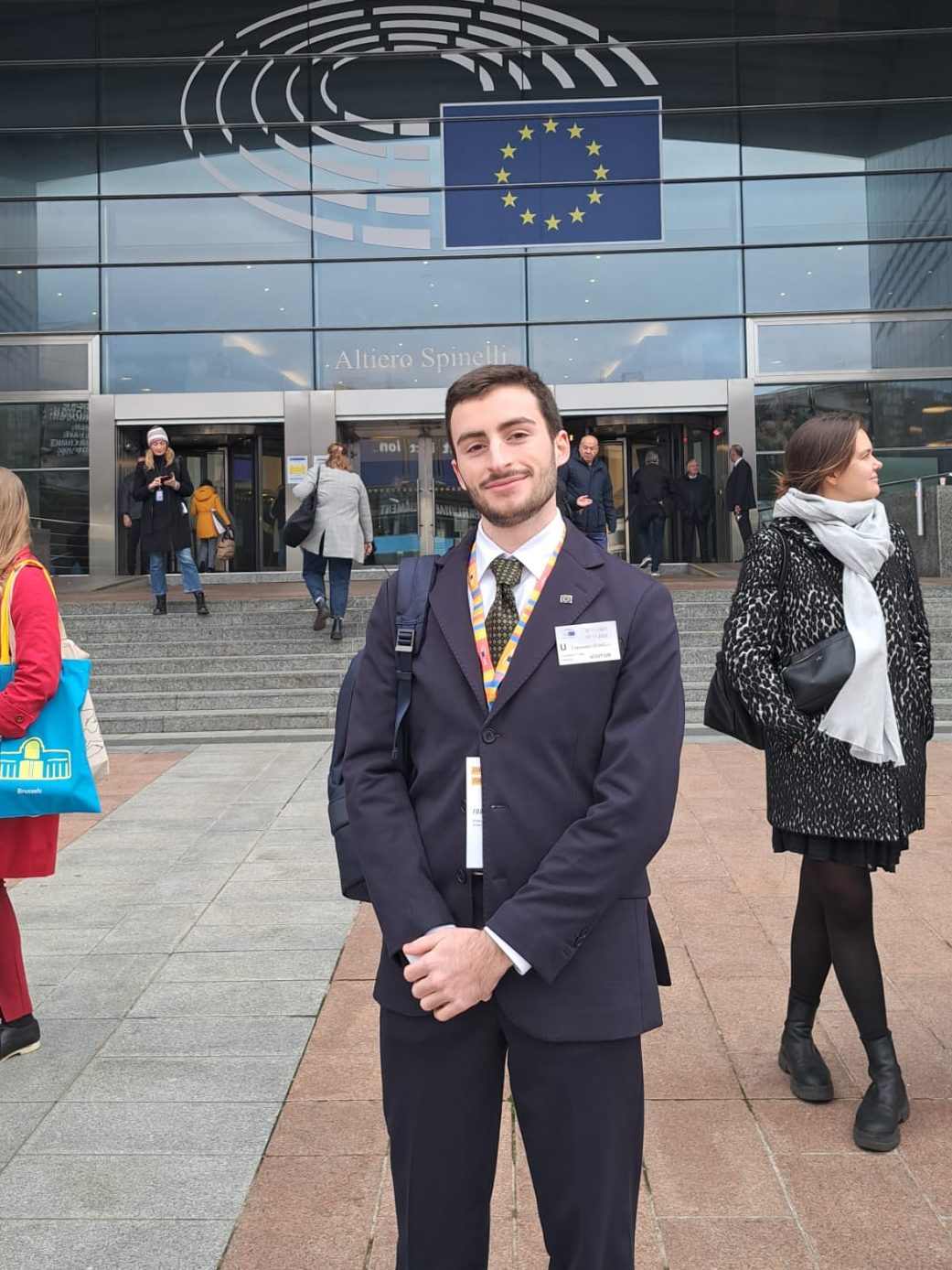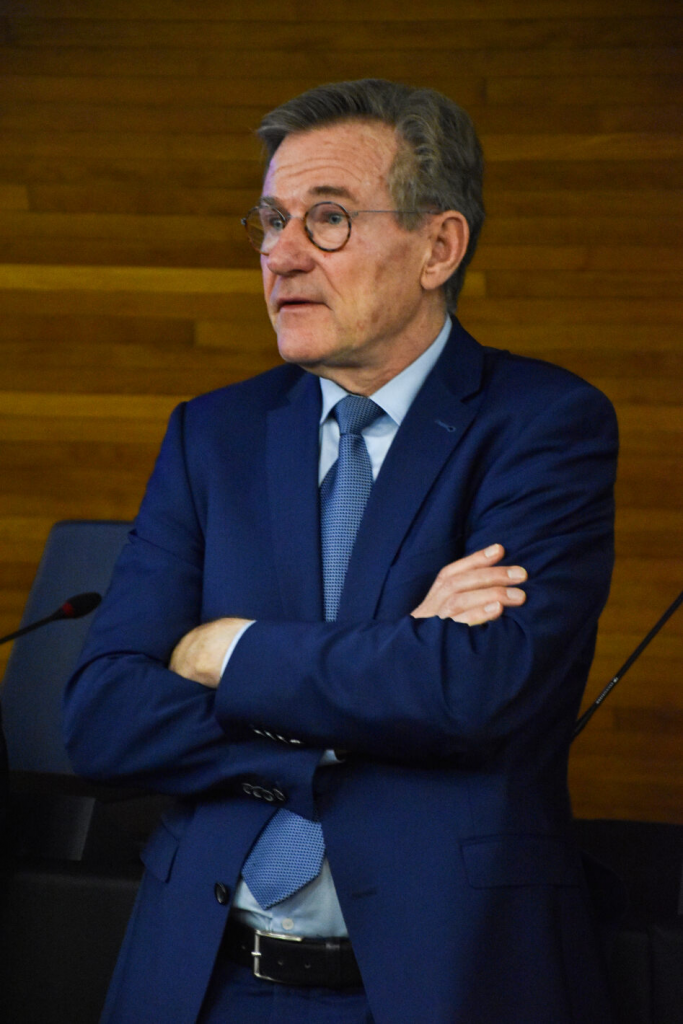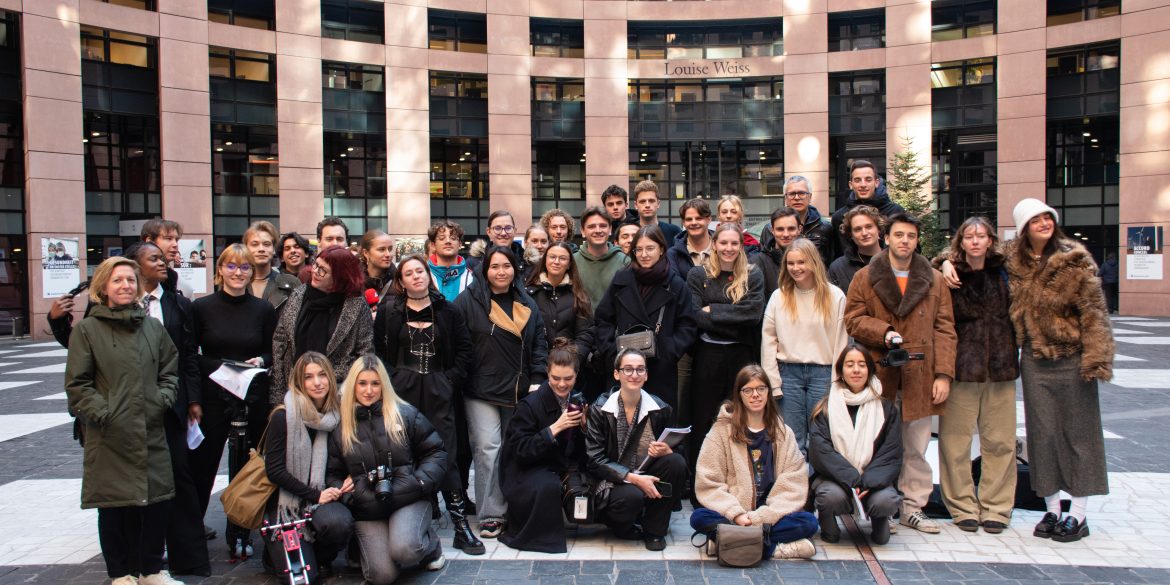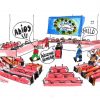Young people are not just the future of Europe; they are its present and its changemakers. In the 2019 EU elections, youngsters’ voting power increased by 14% compared to the previous elections. This growing political engagement is a testament to the potential of young Europeans to shape the future. A recent survey found that 87% of young people in Europe have participated in at least one political or civic activity, showing their passion for making a difference. This is why the EU must embrace the power of youth to shape the future of democracy.
As the EU prepares for its upcoming elections, it’s crucial to ask: how can we empower them to take ownership of their political and civic responsibilities?
For more facts and figures about the present situation, you can take a look at the interactive graphics below and see the statistics of the youth population in each EU country, the 2019 EU voting percentage of youth, and their representation in parliament.
The data set was collected from Eurostat and the European Parliament
Youth’s Wishlist for the 2024 European Elections
As Europe gears up for the 2024 EU elections, our journalists gathered some insights from young people in over 20 countries. Their main worries? First of all, they’re keen on not letting one party dominate everything. They want a mix of different voices in power to safeguard democracy and peace. According to a briefing provided by the European Parliament on the topic of youth participation in European Elections, 52% mention a sense of civic duty when they cast their ballots. Next up, climate change is a big deal for them. They’re looking for leaders who take the issue seriously and have solid plans. Furthermore, mental health and equality have emerged as critical issues, with youth urging leaders to recognize and address the challenges their generation faces. Finally, financial matters are stressing them out – issues like higher prices for transport, housing, and education.

These young voices are asking for leaders who care about democracy, the environment, mental health and making life affordable for everyone.
Elina Rotaru, a Youth Ambassador at the European Union, passionately advocates for the integration of young voices in the parliament. “The opinions, desires, and aspirations of young people should consistently be part of the parliamentary discussion. The only way we can ensure that the concerns of our generation will be heard and discussed is by getting us involved in the election. I think better representation translates into better legislation and for this, we have to step up and contribute.” With the 2024 European elections approaching (June 6 to 9), Rotaru highlights the pivotal role of first-time voters, urging their active involvement for a more representative political landscape.
A Glimpse into Initiatives and Impact
EU has various programmes for young people to engage in politics, including the European Youth Event (EYE) and European Youth Hearing.
At EYE2023 there were 8500 participants in Strasbourg and even more online. Our Wrap reporters contacted EYE participants to gather information about the event from youngsters’ points of view. One of the participants in the event, Francesco Gunelli says -

“It actually managed to reach a lot of people that normally wouldn’t care that much about the European Union”
He also shared what happened at the European Youth Hearing 2023: “We went there to the European Parliament, and we delivered on those ideas and what we think we can do and what they can do about it because the real point there was to connect youth with decision-makers. 66% of the MEPs participated in the workshops afterwards.”
Of course, these are not the only initiatives from the EU, you can take a look at several others below:
- Young European Ambassadors
- The European Parliament Ambassador School Programme (EPAS)
- Together. EU
- Local Eyes
- Online Youth Talks
However, the critical question about these organizations is whether they reach all EU youngsters, not just the ones who are politically engaged. According to Francesco, you also need financial support to attend the event.
Elina Rotaru also relays the same narrative: “Collaborations between the EU and educational institutions is vital. After high school, many are left clueless about voting. If you don’t politically engage yourself how are you ever going to understand this? I had to go and study at a university to do so.”
Young individuals often feel disconnected from the changes they wish to see in the European Union. To bridge this gap, clear communication is crucial between youth and Members of the European Parliament (MEPs). This process begins with ensuring that young people have access to fundamental education about political processes and democratic decision-making in Europe. Unfortunately, schools currently fall short in efficiently providing this information to the youth of the Member States.
Belgian MEP Kathleen Van Brempt, a member of the Party of European Socialists, underscores the significance of comprehending the workings of Europe. She advocates for schools to place a greater focus on educating young individuals about the European system and the voting process. Van Brempt believes that this educational approach will empower young voters to make thoughtful and informed decisions.
It remains important that MEPs listen to the needs and concerns of youngsters so that they can properly represent them. “Youth clubs and organizations are crucial to motivate participation for young people”, claims Ondřej Bárta, a researcher who contributes to the Pool of European Youth Researchers (PEYR).
Social Media is Key
Social media plays an important role in engaging youth with politics. It is their main source of information. The 2021 European Parliament Youth Survey, reported that respondents rely mostly on social media (41 %) and news websites (41 %) to find information about politics and social issues.
Therefore, EU politicians and organizations should be actively using more social media to connect with youth. In the 2019 elections, the European Parliament demonstrated the success of this approach by acknowledging their ‘This time I’m voting’ campaign and Snapchat account having a positive impact on youth participation at the time.
The European Youth Event (EYE) brings together thousands of young people from all over the European Union and the world, to share and shape their ideas on Europe’s future. They achieve this connection by using the power of social media to engage with young people.
“The first time I’ve actually heard of it was through some friends of mine who saw it on Instagram and told me about it. Basically, it’s through social media. It was like one of those sponsored adverts for sponsored content.”
Francesco Gunelli, participant of EYE2023.
And it is not just by using social media advertisements – but actively using their accounts to raise awareness about the EU among youngsters.
Young people are trying to encourage other youngsters to go and vote on social media platforms. One of them is Pietro Valetto, who is the founder of Eu & You. His passion and dedication to civic engagement are inspirational for young people across Europe who choose to take an active role in shaping the future of their communities and the continent as a whole. He believes that social media platforms can be a powerful tool for informing and mobilizing youngsters to get involved in the political process.
The entire interview can be found here.
According to the European Parliament, there is more focus on the crucial role young people play in shaping the future of Europe. Belgian MEPs Kathleen Van Brempt and Marc Botenga (of the Left group in the European Parliament) both highlight the importance of youth in the political landscape. They recognize that the ideas, perspectives, and voices of the younger generations are essential. However, there’s still room for improvement to inform and involve young people more effectively.
Democracy Starts at 16 For Some

For many youngsters in the EU, the elections in 2024 will be the first time they go out to cast their ballots. Only four European countries (Belgium, Austria, Germany and Malta) have decided to lower the voting age from 18 to 16 years old. Ondřej Bárta (European Youth Researcher), thinks this is a very good step towards youth participation: “In some countries, young people are responsible from the age of 16 for their actions. And when you can only vote at 18, it creates a barrier when you are viewed as a responsible person, but you can’t be part of the decision-making process yet.” According to a briefing on the topic provided by the European Parliament, 16 and 17-year-olds tend to have a more optimistic vision of politics and a higher level of trust in governments.
But MEPs remain divided on this matter. “I have mixed feelings about that. Because I think people at that age are quite easily influenced. I would be careful to not over-expose young people to the realities of politics. So I’m not really against it. I caution for certain side effects, however.” says Johan Van Overtveldt from the European Conservatives & Reformists. Kathleen Van Brempt, MEP of the Socialists fraction, is more positive about this.
Motivated Youth VS. Opportunistic Politicians
Sadly, it is not in everyone’s interest to pursue a more inclusive political landscape within the European Union. There is certainly a call to action around Europe for political parties to embrace age diversity, but some of these efforts have been more successful than others.
Johan Van Overtveldt (EC&R) raises concerns about the disproportionate representation of age in the European Parliament. He acknowledges the numerical imbalance when it comes to younger MEPs, saying there should indeed be a better distribution.
Van Overtveldt highlights the current disparity, mentioning the potential disadvantage for the youth. Politicians who decide to sideline the concerns of younger voters might have more to gain in terms of electoral power.
The entire interview can be found here
But that is not to say that every MEP is one of these “opportunistic politicians” who only seek to pander to the older vote. Gilles Pitoors, an expert who specializes in European affairs, views the matter in a different light. He reminds us that since 1979 every European election has suffered from a reduced turnout. It was only once the elections of 2019 took place that this trend shifted, in large part due to an increased turnout among younger voters.

The European Parliament and MEPs are very much aware that if they want to make a claim to representativeness and increase their democratic mandate and the turnout in European elections that speaking to young people is very important.”
– Gilles Pitoors, expert on European Affairs
Another pressing issue comes to the forefront: young people who want to vote but who are not allowed to. We talked to Ransford Gyasi, a youngster who would love to vote and have his voice heard, but is barred from doing so:
Shaping Europe Through Engagement
The youth yearns for inclusive governance that is prepared to address the vital and unique challenges that face them and the world today, such as climate change, equality and financial stability.
Despite ongoing hurdles in accessibility to EU initiatives and the need for better educational integration, social media has emerged as a powerful tool for political engagement. The debate over lowering the voting age highlights diverging views. Fostering the voices and active participation of young people is advantageous for creating a stronger and more democratic future for Europe.
After all, the previous European elections have already shown that the youth can have a massive impact on turnout and results alike. Looking ahead, the 2024 elections could continue this surge in the active involvement of younger voters, possibly shaping outcomes once again.




